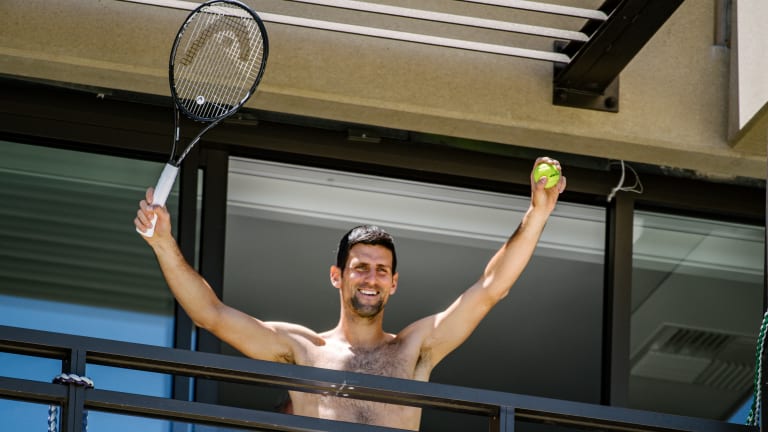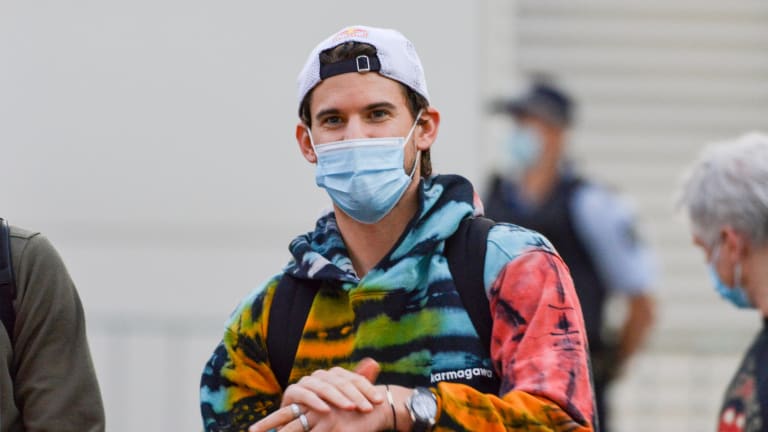Novak Djokovic spent a lot of time on his balcony in Adelaide. (Getty Images)
It's still unclear how the latest development in Melbourne, where one Hyatt hotel worker has tested positive, will impact the Australian Open. All play on Thursday was cancelled as affected players and entourage entered isolation and another round of testing.
Grand Slam preparations have never been so different and it will be quite the adjustment for all the players Down Under, but especially those 72. Instead of the usual warm up events that occur all over Australia weeks before the major event, six tournaments are occurring at the same time at the same place.
"These players have right about, I believe it is, nine or 10 days before the Australian Open starts," Davenport says. "That's a big ask, especially if you look at some of the men's players that obviously have to play three-out-of-five sets, deal with potentially the Australian summer heat."
For most, it has been months since they competed and suddenly they will be vying for a major title. Not only do they have to be able to shake off the rust quicker than ever before, but they will be prone to injury among other variables.
"I worry for those 72 players that were in the hard lockdown. Physically I think we're going to see a lot of players suffer because of that," the 2000 Aussie Open champion says.
Unlike the rest of the players who quarantined in smaller hotel rooms in Melbourne, some big names in the sport had a much different quarantine experience in Adelaide—large balconies, the access to a fully equipped gym and their own exhibition event. In an interview a few weeks ago, Tennis Australia CEO Craig Tiley admitted that Novak Djokovic, Serena Williams, Rafael Nadal, Naomi Osaka, Dominic Thiem and Simona Halep got a "better deal."
According to Davenport this top-player treatment is not a rare occurrence.
"There's always been a huge gap, a huge discrepancy in how the top players are treated to the rest of the field. Even now I think because we have the greatest of all time playing in the same era, it's pretty remarkable."

